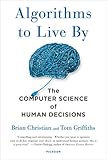Changing your perceptions and your own behavior can be key to overcoming a challenge. Linda Henman encourages leaders to turn off behavior “autopilot” to make sure what they’re doing is really working.
Too often discussions of attitudes, values and beliefs center on the person, making us blind to the power of the situation. Marketers advocate finding the right psychographic for a product. Psychologists talk about finding the person who is ready to quit smoking. Human resource managers focus on getting the right people on the bus, and change-management experts encourage us to classify people according to their readiness to accept change. As a consultant who specializes in succession planning and C-suite selection, I admit I have fallen into this trap too.
But Stanford psychologist Lee Ross didn’t.
Instead, he developed The Fundamental Attribution Error theory by surveying dozens of studies in psychology and noting that people have a systematic tendency to ignore the situational forces that shape behavior. As Ross pointed out, the error lies in our inclination to attribute people’s behavior to the way they are rather than to the situation they are in. So often, what looks like an attitude problem is really a situation problem.
Therefore, tweaking the environment frequently alters beliefs, which in turn…




























